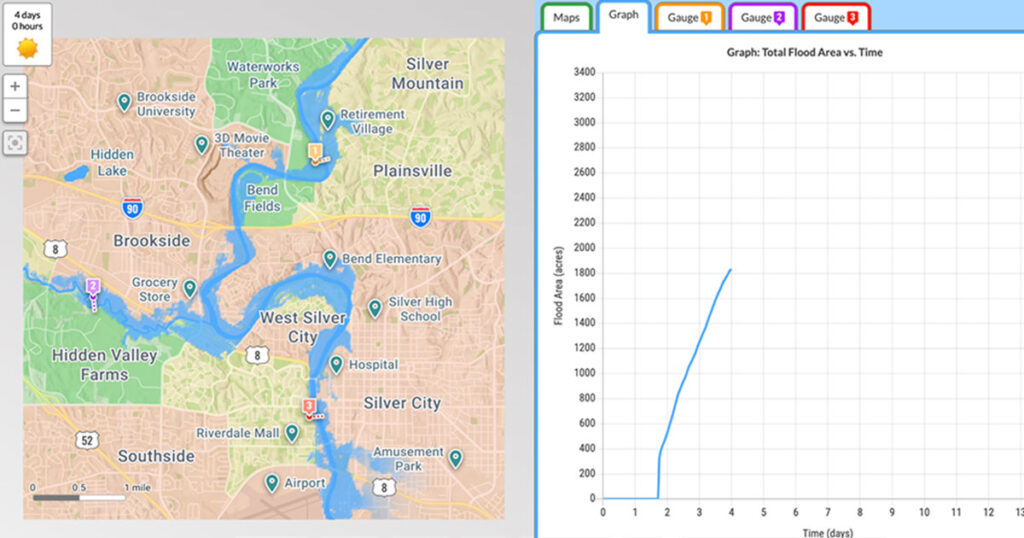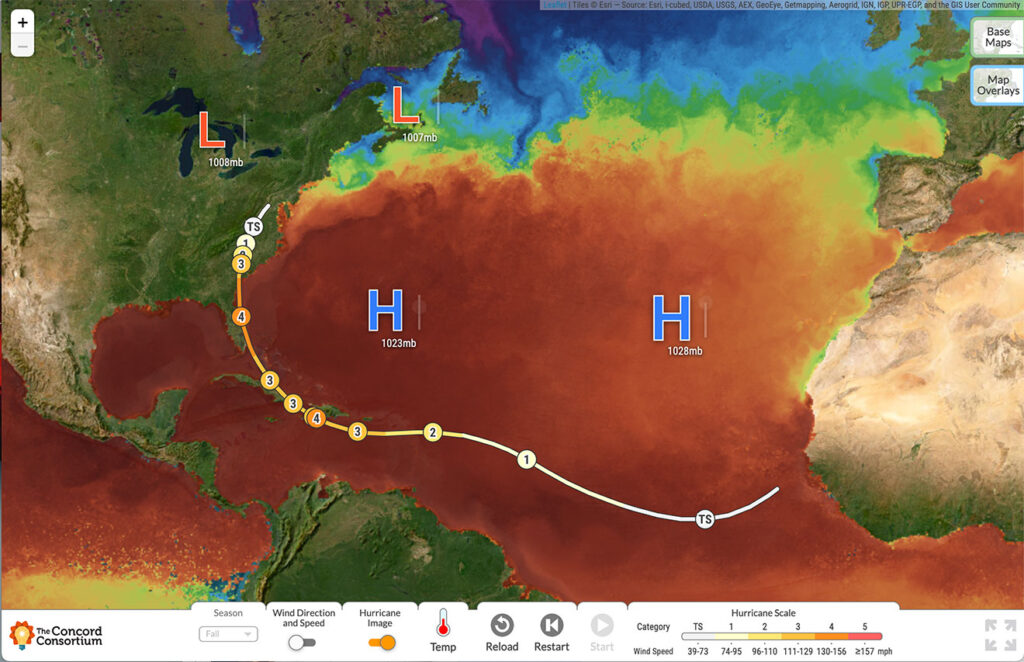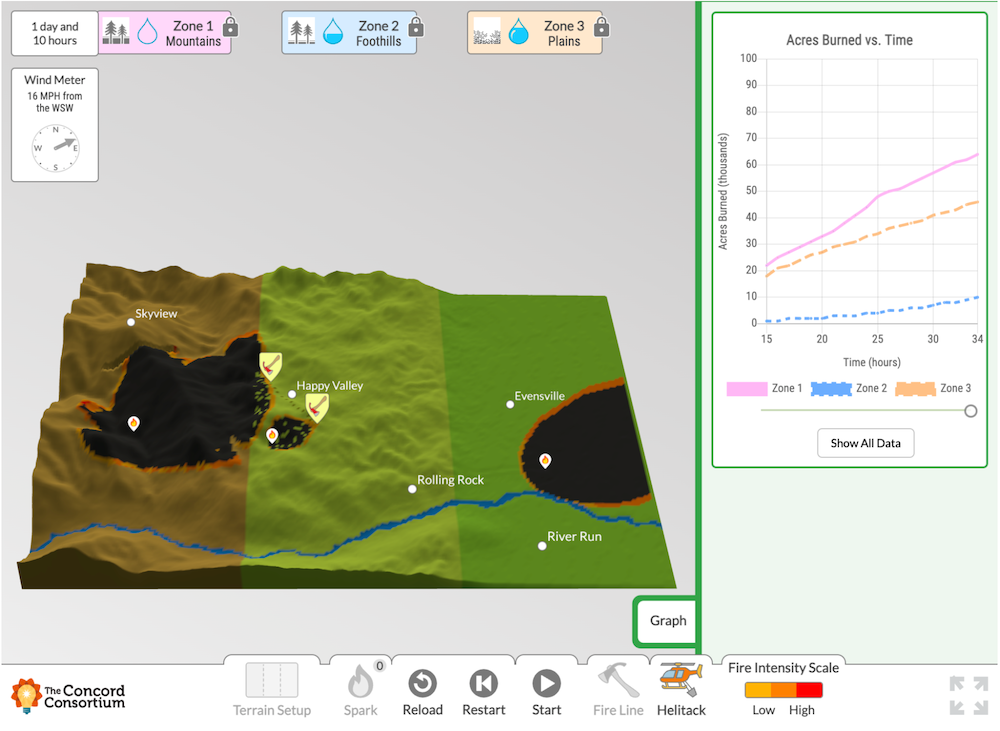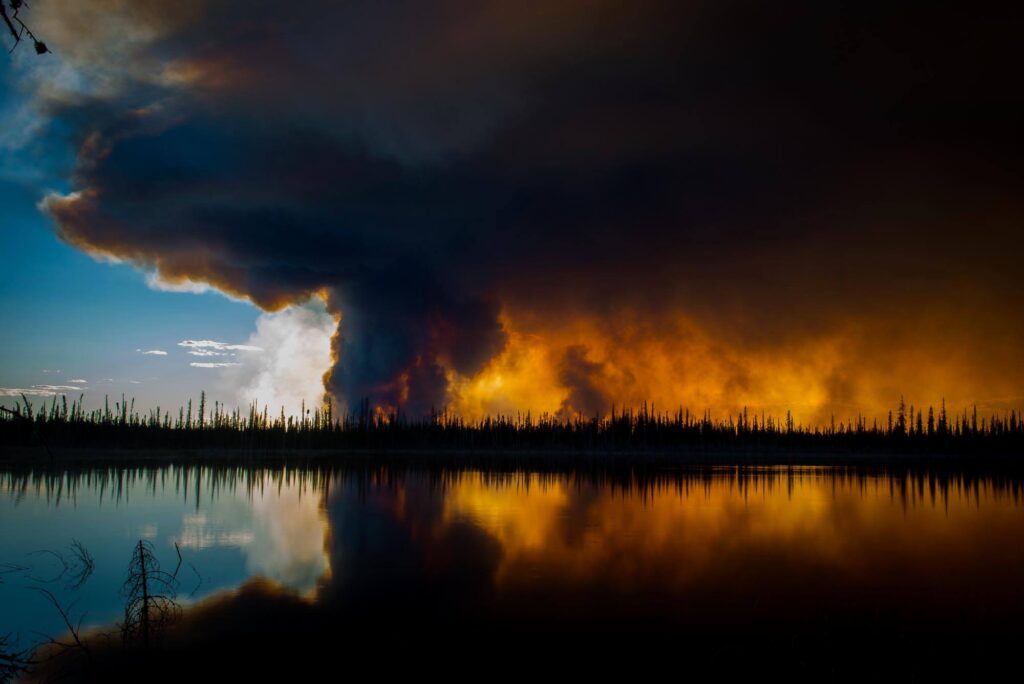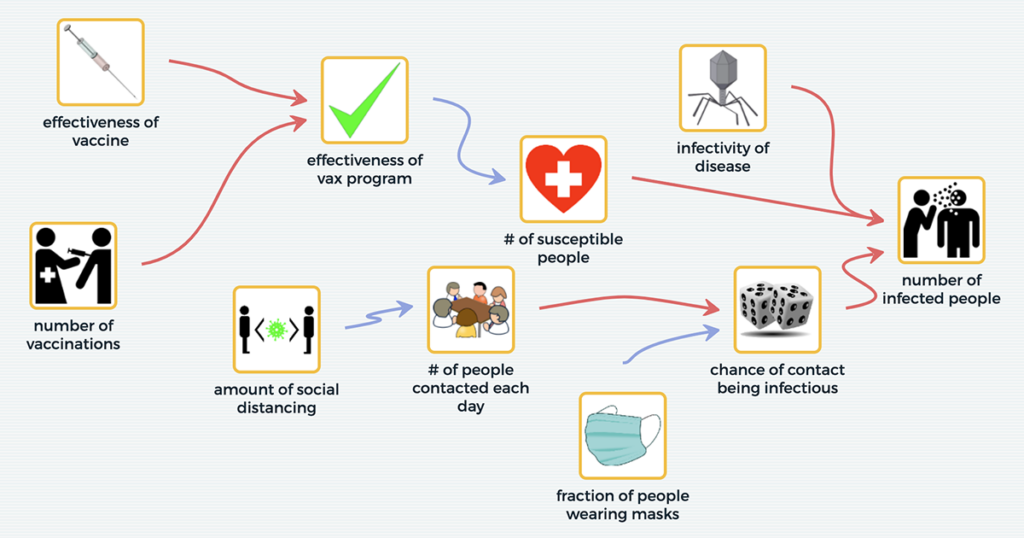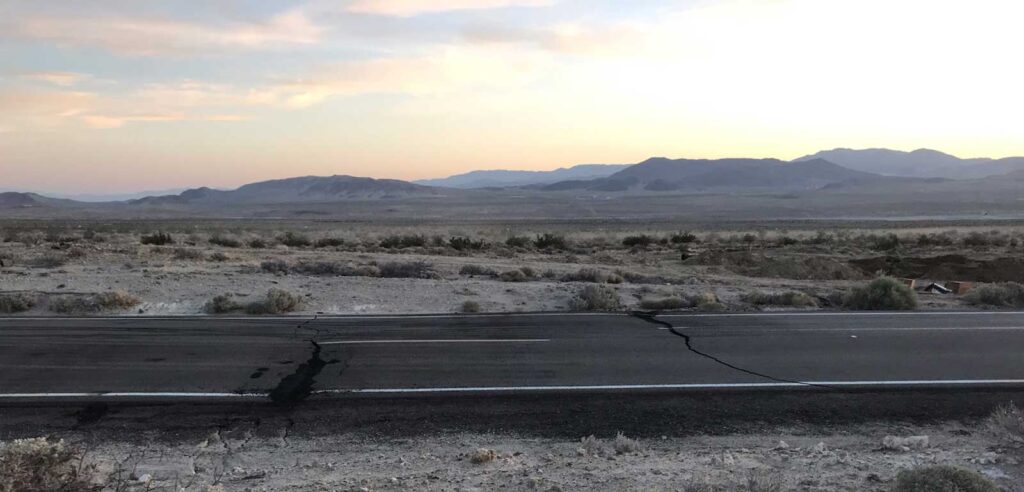Category: Research Projects
We are working to develop the CODAP ecosystem by engaging user communities, refining development infrastructure, establishing effective governance models, and exploring sustainability options to ensure CODAP’s future.
In collaboration with the University of Florida, Texas Tech University, WestEd, and Florida Virtual School, this project is developing and researching a supplemental program for students to explore AI concepts in connection with their math course.
Stephanie Harmon is a Science Consultant with the Partnership Institute for Math and Science Education Reform (PIMSER) in Kentucky. Previously, she taught Earth science and physics at Rockcastle County High School in Mount Vernon, Kentucky, and has consulted on several Concord Consortium projects. For my students in rural Kentucky, floods are personal. In July 2022, […]
Michael Focht is a middle school teacher in Titusville, Florida, and field tested our GeoHazard modules. Do the names Matthew, Nicole, Ian, or Irma give you pause? Are they long-lost cousins? Friends from high school? For the students in my middle school science classes, these are the names of hurricanes that have impacted them over […]
Turn on the news and you’ll see horrific images of flames enveloping hillsides, engulfing homes, and destroying entire communities. This year’s wildfire season is on track, once again, to be one of the worst in history. The number of acres burned in California in August 2024 is already more than double the number of acres […]
With the University at Buffalo and the University of Michigan, we are designing a platform for collaborative front-end engineering design, incorporating a virtual design mentor, and assisting teachers and students to divergently explore design concepts.
In collaboration with scientists at the University of Colorado Denver and the University of Montana, we are developing a boreal forest fire simulation that allows students to explore the effects of climate change on wildfires in this important ecosystem.
From local environmental justice issues to global phenomena such as climate change, complex problems often require systems thinking to address them. Since 2018, the National Science Foundation-funded Multilevel Computational Modeling project, a collaboration between the Concord Consortium and the CREATE for STEM Institute at Michigan State University, has researched how the use of our SageModeler […]
In collaboration with Carnegie Mellon University and North Carolina State University, we are designing and researching curriculum modules for secondary math, English language arts, and history to incorporate AI education across the curriculum.
In partnership with EarthScope, the University of South Florida, and the San Joaquin School District, this project fosters the development of computational geoscience identities and career awareness in urban youth using an earthquake risks and impacts curriculum.


